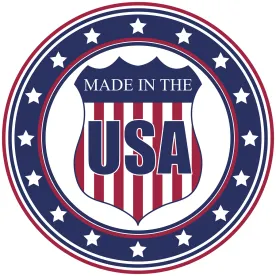On January 25, 2021, President Biden issued an Executive Order on Ensuring the Future Is Made in All of America by All of America’s Workers (the “EO”). The purpose of the EO is to strengthen “Made in America Laws,” which include the Buy American Act and other statutes, regulations, rules and Executive Orders that require acquisition of good, products and materials produced or manufactured in the U.S. The EO instructs the Office of Management and Budget (“OMB”) to establish a Made in America Office and appoint a Made in America Director (the “Director”) to oversee implementation of the EO policy.
New Requirements for Requesting Waivers to Domestic Procurement Preferences
Agencies will now be required to submit waivers of Made in America Law requirements to the Director, along with a description and justification of the proposed waiver. Within 45 days of appointing the Director, OMB shall publish:
-
A list of information that that agencies must include in proposed waiver submission; and
-
A deadline, not exceeding 15 days, for notification to the agency of the results of review of the submission or waiving a review of the submission;
After reviewing the agency’s proposed waiver submission, the Director will provide notification of the decision to grant or reject the waiver in writing. The Director will provide a written explanation where a requested waiver is denied. If the agency disagrees with the decision, it can inform the Director in writing, and the disagreement will be resolved through the procedures described in Section 7 of Executive Order 12866 (Regulatory Planning and Review).
Information regarding proposed waivers and whether they have been granted will be published on a public website. OMB will make proposed waiver submissions available to the public, to the extent permitted by law.
Amendments to the FAR
The FAR Council must consider proposing amendments to the FAR within 180 days of the EO. These amendments include:
-
Replacing the “component test” in Part 25 of the FAR, which is used to identify domestic end products and construction materials, with a test which measures the value added to the product through U.S.-based production or U.S.-job supporting economic activity;
-
Increasing the numerical threshold for domestic content requirements (currently 55%); and
-
Increasing price preferences (i.e., the difference in price over which an agency can buy from a non-U.S. supplier; currently 20% for large businesses and 30% for small businesses) for domestic end products and construction materials.
The EO also requires the Director of OMB, in consultation with the Secretary of Commerce and the Made in America Director, to make determinations of availability before the FAR Council may amend the list of domestically non-available articles in Section 25.104(a). The Director of OMB must find a “reasonable basis” to conclude that articles on the list are not “mined, produced, or manufactured in the US in sufficient and reasonably available commercial qualifies and of a satisfactory quality.”
The EO also encourages the FAR Council to list any constraints on extending the domestic preference requirements to information technology that are commercial items.
Agency Reporting
Within 180 days of the EO, agencies must submit an initial report to the Director describing the agency’s current compliance with Made in America laws, the agency’s use of longstanding or nationwide waivers and their consistency with the EO’s policy, and recommendations for implementing the policy. The EO requires agencies to submit this report bi-annually, with updated analysis on where domestic preference requirements have been waived and how waivers have affected agency spending.
Agencies are also directed to partner with Hollings Manufacturing Extension Partnership to conduct “supplier scouting,” though which they will identify American companies, including small- and medium-sized companies, with the capability to produce and manufacture products in the U.S. that meet Federal procurement needs.






 />i
/>i
